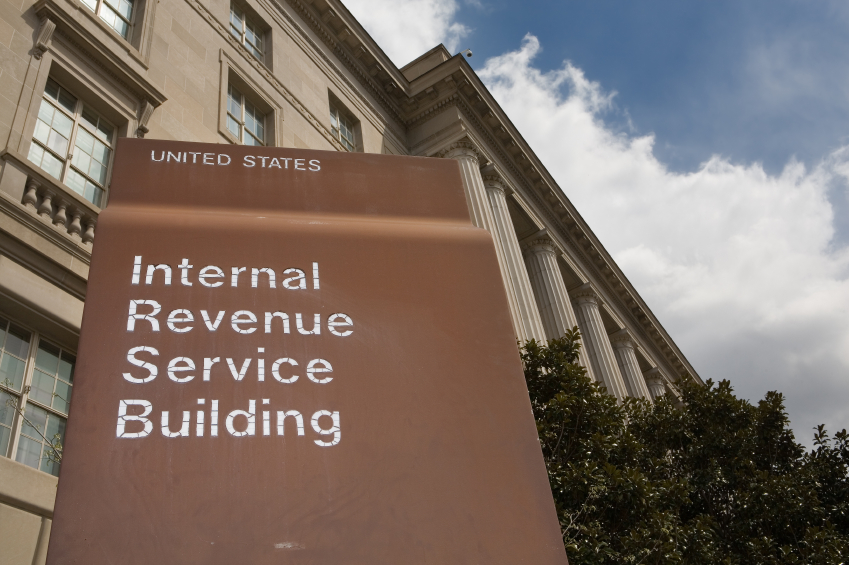Taxes
IRS Is Developing Its Own Free Tax Preparation System
The agency said on Tuesday it is taking steps to test out an IRS-run e-filing system called “Direct File” starting next year.
May. 19, 2023

The IRS is planning to roll out its own free online tax-filing system in a move that could put the agency in direct competition with online tax preparation behemoths like Turbo Tax and H&R Block.
In a report the agency submitted to Congress on Tuesday, as required by the Inflation Reduction Act, the IRS said it evaluated the feasibility of providing taxpayers with the option of a free, voluntary, IRS-run electronic filing system, which is being called “Direct File.” The agency said it is taking steps to begin a pilot project for the 2024 filing season, as directed by the Treasury Department.
In a press release, the IRS said:
The report finds that many taxpayers are interested in using a free IRS-provided tool to prepare and file taxes, and that the agency is technically capable of delivering a Direct File program. It also concludes that effective execution of a Direct File program would require sustained budget investment and careful management of the potential program’s operational complexity.
The report focuses on three areas: taxpayer opinions, cost and feasibility. The report also includes an analysis conducted by an independent third party, as required by the statute. The report also lays out the potential benefits and challenges associated with the IRS implementing a Direct File program.
“The IRS is committed to delivering significantly improved services by providing taxpayers with tools, information and assistance to make it easier to comply with their tax filing obligations. Direct File—used by numerous tax jurisdictions around the world—has long been discussed as an option for improving the customer experience for taxpayers in the U.S.,” said IRS Commissioner Danny Werfel. “The IRS review looked at the potential operational and administrative requirements of such a system. Ultimately, the results show there is taxpayer interest in an optional Direct file program and such a program is technically feasible. Any path forward should start with a limited pilot to assess operational factors described in this study.”
As directed by Treasury, the IRS will move to gather further information through the implementation of a scaled Direct File pilot in the 2024 filing season to further assess customer support and technology needs and the ability to overcome the potential operational challenges identified in the report. Additional details on the Direct File pilot will be available in coming months.
The IRS report relied on information from the agency’s Taxpayer Experience Survey (TES), which surveyed thousands of taxpayers on these topics. The IRS also reviewed and incorporated findings from an independently conducted survey by the MITRE Corporation.
The IRS supplemented data from these taxpayer surveys with user research and usability testing that was conducted using a basic internal prototype to better understand first-hand taxpayer perspectives.
The IRS report also includes a separate, independent analysis done by New America and Professor Ariel Jurow Kleiman on the Direct File concept.
The IRS looks forward to engaging with stakeholders around this important topic in the months ahead.
The Washington Post reported Monday that the IRS had already built a prototype of the system that will launch to a small group of users in January. Building of the prototype was funded through $15 million from last year’s Inflation Reduction Act.
Currently, IRS Free File directs users to commercial providers through an existing public-private partnership. It is only available, however, to those making $73,000 or less a year. Free File does not auto complete any of the financial information but does provide free filing for most state taxes. The Free File program will continue, IRS officials said today.
A free, government-run, online tax-filing system for taxpayers has been talked about as a possibility for many years. As the Associated Press noted today, supporters of the idea have said the option would make tax return services more equitable and accessible for all Americans. Critics have expressed skepticism about the IRS taking on the dual roles of both tax collector and tax preparer, arguing that the new service could create a power imbalance between taxpayers and the government.
Big tax preparation companies also have been critical of the idea, which should come as no surprise—they could lose millions of dollars when the IRS’s Direct File system goes live. Neither Intuit nor H&R Block has publicly commented today on the IRS Direct File proposal.
During a conference call with reporters on Tuesday, Werfel acknowledged concerns surrounding a possible Direct File system, notably operational challenges, but maintained taxpayers should chose the filing option that works best for them and that “the IRS cannot run the tax system alone,” according to the Associated Press.
“We rely on an extensive network of partners across tax professional groups, the software communities, the payroll community and countless dedicated organizations that work directly with taxpayers,” Werfel said. “This report changes none of that.”
[Leada Gore of al.com contributed to this report.]
